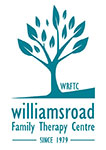Course information for - 2026 entry
Domestic
- Domestic
- Domestic
Offered at 1 locations
- Melbourne
- Melbourne
- Duration
- 1 year part-time
- ATAR
- N/A
- Fees (first year)*
- Start dates
-
Semester 1 intake: Beginning February 2026
Applications open August 2025
Midyear (Semester 2) intake: Not offered this intake
If you are considering studying Family and Systemic Therapy, you are encouraged to talk with the Course Coordinator, Tom Whelan (tom.whelan@acu.edu.au), who is happy to provide you with further information.
Overview

The Graduate Certificate in Family and Systemic Therapy is a one year, part-time specialist postgraduate training program, for professionals wishing to gain an introduction to working with families.
The aim of the Graduate Certificate in Family and Systemic Therapy is to extend the professional knowledge and skills of helping professionals with specialised knowledge and skills in Family and Systemic therapy to be able to systematically conceptualise and participate in the implementation of family focussed, family inclusive and systemic interventions within their area of practice. Graduates will be eligible for associate membership of the Australian Association of Family Therapy.
This program is appropriate for psychologists, clinical social workers, and other professionals already working in family-sensitive programs, who want to acquire greater conceptual and practical competencies, or to increase knowledge and clinical confidence. The course is aimed at practitioners who at looking to:
- develop depth of expertise in Systemic and Family Therapy
- increase the precision and quality of their clinical or therapeutic work with complex social-relational systems
- include international best practice and research into their work with families and individuals.
Careers
Course details
Course structure
To qualify for the Graduate Certificate in Family and Systemic Therapy, a student must complete 40 credit points from the Schedule of Unit Offerings.
Course map
Graduate statement
AQF framework
Additional course information
Year 1 Semester 1
Concepts and Models of Family and Systemic Therapy 1 (Core unit - 10 cp)
• Models of Family and Systemic Therapy: focus of intervention and change mechanisms
• Family lifecycle, structure, and communication in the system
• Trauma and disruption in relational systems
Practices and Processes of Family and Systemic Therapy 1 (Core unit - 10 cp)
• Family of origin, and exploring the impact of birth order, family structure, and family rules
• Exploring multigenerational themes of family history
• Seeing and experiencing the relational spaces in family systems
• Secrets, alliances, and coalitions
• Family and systemic treatment planning
Year 1 Semester 2
Concepts and Models of Family and Systemic Therapy 2 (Core unit - 10 cp)
• Couple formation and consequent
• Family adaptation and functioning
• Problems presenting through children and adolescents
• Trans-generational transmission of trauma: Recent developments in research, theory and practice
Practices and Processes of Family and Systemic Therapy 2 (Core unit - 10 cp)
• Exploring the family's ethics, moral and cultural values, and spirituality, as core family resources
• Exploring intimacy, emotional connection, emotional expression and emotional literacy
• Session assessment skills
Entry requirements
An applicant must also comply with the Admission to Coursework Programs Policy.
To be eligible for admission to the course, an applicant must have:
1. a Bachelor degree in health or related helping discipline*;
OR
submitted a resume alongside their formal application, demonstrating suitability for study and evidence of relevant industry experience and/or prior learning over a sustained period;
AND
2. Successfully complete the interview process associated with the course.
Disclaimer: The course entry requirements above are for 2026 Admission.
Applicants with higher education study
Students whose first language is other than English need to meet the English Language Proficiency requirements as defined in the Admission to Coursework Programs Policy.
Graduate Certificate:
An applicant must also comply with the Admission to Coursework Programs Policy.
To be eligible for admission to the course, an applicant must have:
1. a Bachelor degree in health or related helping discipline*;
OR
submitted a resume alongside their formal application, demonstrating suitability for study and evidence of relevant industry experience and/or prior learning over a sustained period;
AND
2. Successfully complete the interview process associated with the course.
You will need to meet the minimum entry requirements and subject prerequisites for your chosen course.
If you have completed at least two units of AQF-recognised study at bachelor level or above, we’ll assign you with a new selection rank that reflects your study level, duration, and grade point average.
If your prior study or relevant work experience has provided you with knowledge, skills or experience aligned with the learning outcomes of units in your new course, you may be eligible to gain credit for study or have your prior learning recognised. This means you may be able to complete your ACU course in a shorter timeframe.
You can use our credit search tool to see what you might be eligible for. For more information about credit and recognition of prior learning at ACU, follow the link below.
Applicants with work and life experience
Special entry is available for practitioners with extensive counselling experience but who do not have a Bachelor level qualification.
Inherent requirement
There are essential components of a course or unit that demonstrate the capabilities, knowledge and skills to achieve the core learning outcomes of that course or unit. You will need to be able to meet these inherent requirements to complete your course.
Learn more about inherent requirements for your course and how they affect you
Pathways
Pathways into course for current or recent Year 12 students
Applicants should have completed a basic qualification in the health or social sciences at least at Bachelors level and equivalent in terms of level and depth of training as defined by Australian Qualification Framework, of the Graduate Diploma in Family and Systemic Therapy
Applicants need to demonstrate fundamental relational capacity and readiness for advanced training as family therapist by attending an interview and/or being observed interacting and participating in an experiential workshop, and/or on the recommendation of referees.
Fees
Course costs
*This is an indicative first-year fee based on unit enrolment data from domestic students who studied the course in the previous year.
A student’s annual fee will vary depending on factors including:
- Number of units studied per year
- Choice of major or specialisation
- Elective units
The University reviews fees annually.
You can view current course costs and domestic tuition fee rates by unit.
A 10% rebate on fees will be offered to domestic ACU graduates (from any faculty) enrolling in full fee-paying postgraduate studies in the Faculty of Health Sciences. Conditions apply.
Additional costs
A Student Services Fee of $45 per semester is also payable per participant, and textbooks may need to be purchased for each unit.
Payment options
You should be able to concentrate on getting good marks instead of worrying about how you’ll pay your fees. We have a number of options that can help you ease the financial burden, including government assistance, scholarships and income support.
Scholarships
You could be eligible for one of the hundreds of scholarships we award each year to help students from across the university with the cost of studying, accommodation or overseas study opportunities. Some of our scholarships are awarded on the basis of merit, but these aren’t just for the academically gifted; ACU also recognises excellence in community engagement and leadership. We also offer a range of scholarships for those who may be struggling financially or who have faced other barriers to accessing education.

